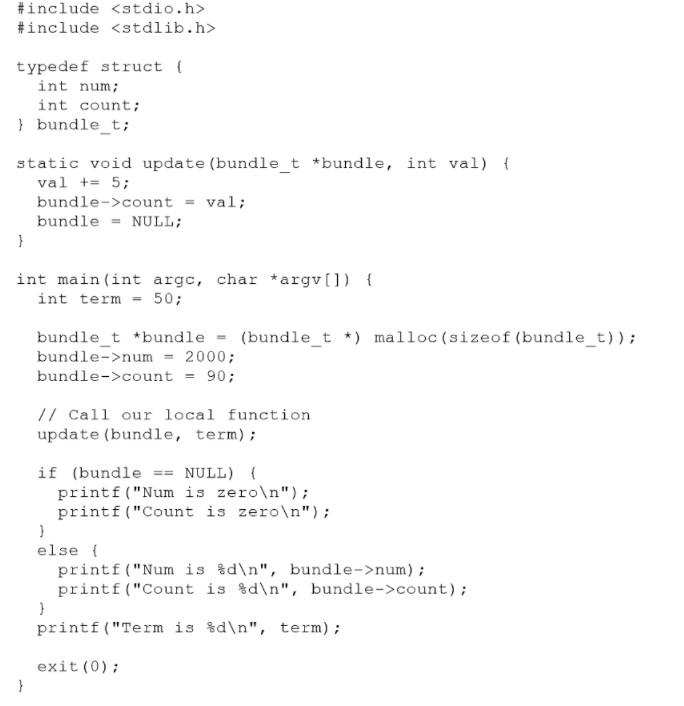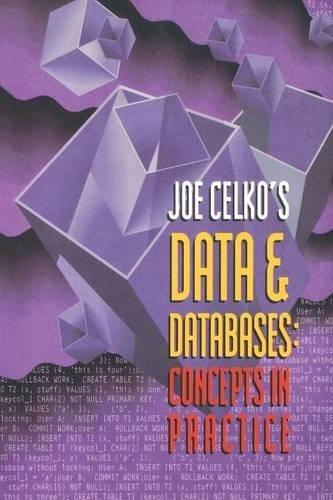Answered step by step
Verified Expert Solution
Question
1 Approved Answer
#include #include typedef struct int num; int count; bundle_t; static void update (bundle_t *bundle, int val) { val += 5; bundle->count = val; bundle =




Step by Step Solution
There are 3 Steps involved in it
Step: 1

Get Instant Access to Expert-Tailored Solutions
See step-by-step solutions with expert insights and AI powered tools for academic success
Step: 2

Step: 3

Ace Your Homework with AI
Get the answers you need in no time with our AI-driven, step-by-step assistance
Get Started


